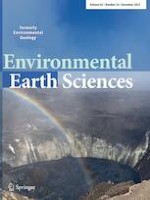01.12.2023 | Original Article
Evaluating the role of polyelectrolyte in effluent treatment process at water treatment plants for balancing water resources (case study: Iran: water treatment plants of Tehran)
Erschienen in: Environmental Earth Sciences | Ausgabe 24/2023
EinloggenAktivieren Sie unsere intelligente Suche, um passende Fachinhalte oder Patente zu finden.
Wählen Sie Textabschnitte aus um mit Künstlicher Intelligenz passenden Patente zu finden. powered by
Markieren Sie Textabschnitte, um KI-gestützt weitere passende Inhalte zu finden. powered by
